Are you considering a rewarding career in respiratory therapy? This field offers a unique opportunity to make a meaningful impact on patients' lives while working alongside healthcare professionals. Enrolling in a respiratory therapy program is the first step toward gaining the skills and knowledge needed to excel in this vital role. Keep reading to discover more about the program and how you can get started on your journey today!
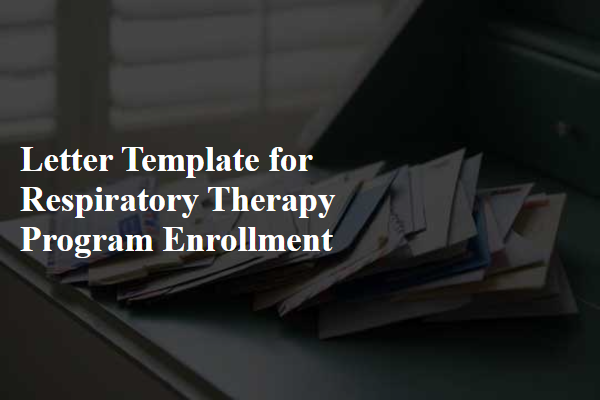
Personal Statement and Motivation.
The pursuit of a respiratory therapy career requires a deep commitment to patient care and advanced medical knowledge. Aspiring respiratory therapists encounter diverse patients, from newborns to the elderly, struggling with conditions like asthma, COPD (Chronic Obstructive Pulmonary Disease), or pneumonia. Through rigorous training, which often takes place in accredited programs nationally recognized by the Commission on Accreditation for Respiratory Care (CoARC), students develop essential skills in mechanical ventilation, oxygen therapy, and pulmonary rehabilitation. The role of respiratory therapists in healthcare settings, including hospitals, clinics, and rehabilitation facilities, is critical as they significantly contribute to improving patients' quality of life. Moreover, positive patient outcomes depend on effective communication and interpersonal skills, fostering trust and understanding during vulnerable moments. Ultimately, embodying a combination of compassion, diligence, and technical competence is vital for success in this rewarding and essential healthcare field.
Academic Background and Prerequisites.
The academic background essential for enrollment in a respiratory therapy program includes foundational knowledge in subjects such as biology, chemistry, and physiology. A high school diploma or equivalent is typically necessary, with a focus on science courses that support understanding of human anatomy and respiratory function. Completion of prerequisite courses, often including introductory courses in anatomy and physiology, microbiology, and algebra, are usually required. Many programs also recommend or require clinical experience or observation hours in a healthcare setting to enhance practical understanding. In some cases, candidates may need to undergo specific assessment tests to demonstrate proficiency in these subject areas, ensuring preparedness for the rigors of clinical training.
Clinical Experience and Skills.
Clinical experience in respiratory therapy programs involves hands-on training in patient care settings. Typically, enrolled students gain exposure through internships or placements in hospitals, clinics, or rehabilitation centers. Skills developed during this phase include assessing respiratory function through techniques like spirometry, administering therapeutic interventions such as oxygen therapy or nebulizer treatments, and understanding the use of ventilators in critical care environments. Learning to implement patient monitoring systems in settings, such as the intensive care unit (ICU), and conducting patient education on managing chronic respiratory conditions like asthma or chronic obstructive pulmonary disease (COPD) are also vital components. Collaboration with healthcare professionals, including pulmonologists and nurses, fosters interdisciplinary communication skills necessary for effective patient care.
Letters of Recommendation.
Letters of recommendation play a crucial role in the enrollment process for respiratory therapy programs, highlighting the applicant's capabilities, character, and commitment. These letters should ideally come from professionals in the healthcare field, such as physicians, respiratory therapists, or clinical instructors, who can provide insight into the applicant's clinical skills and work ethic. Specific examples of the candidate's interactions with patients, ability to work in a team setting, and dedication to learning can enhance the narrative. Recommendations typically require a professional format, including the recommender's name, title, and contact information, along with a formal greeting addressing the admissions committee. The content should reflect the applicant's qualifications relevant to the challenging coursework and requirements of accredited programs, such as those meeting standards set by the Commission on Accreditation for Respiratory Care (CoARC).
Enrollment Requirements and Deadlines.
Respiratory therapy programs require specific enrollment criteria for aspiring students. Candidates must typically possess a high school diploma or equivalent (such as the GED) and may need to complete prerequisite courses in subjects like biology and chemistry. Some programs emphasize the importance of maintaining a minimum GPA, often around 2.5 or higher. The application process may necessitate letters of recommendation, personal essays, and standardized test scores (like the ACT or SAT) depending on the institution. Enrollment deadlines vary by program but generally fall between February and May for fall semester starts. Prospective students should check specific program websites at accredited institutions (like the American Association for Respiratory Care accredited colleges) for updated information. Early submission of applications is advisable as some programs may have limited spaces or offer rolling admissions.
Letter Template For Respiratory Therapy Program Enrollment Samples
Letter template of application for respiratory therapy program admission
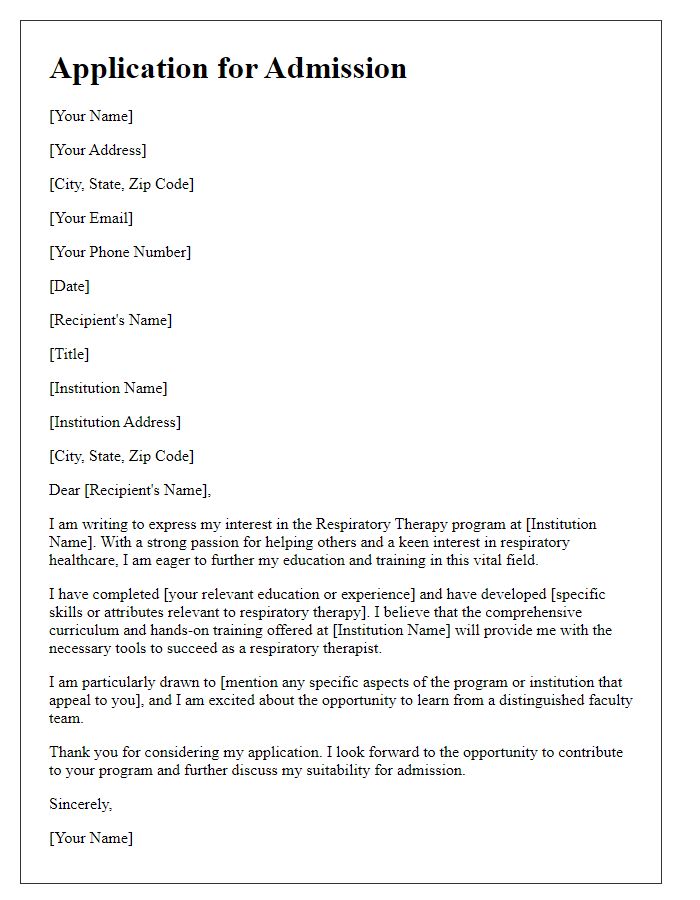
Letter template of acceptance confirmation for respiratory therapy program
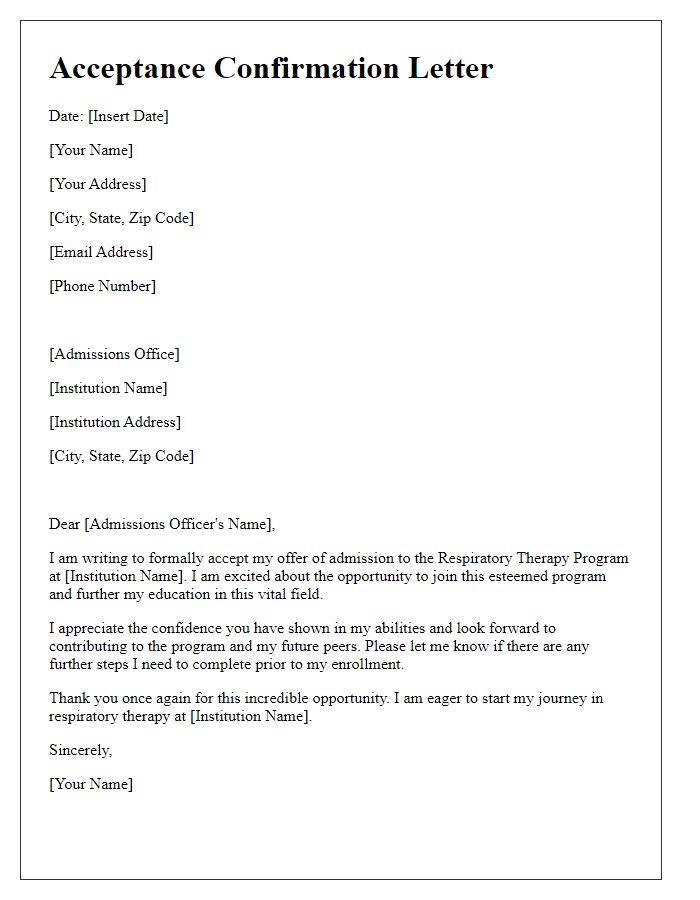
Letter template of recommendation request for respiratory therapy program
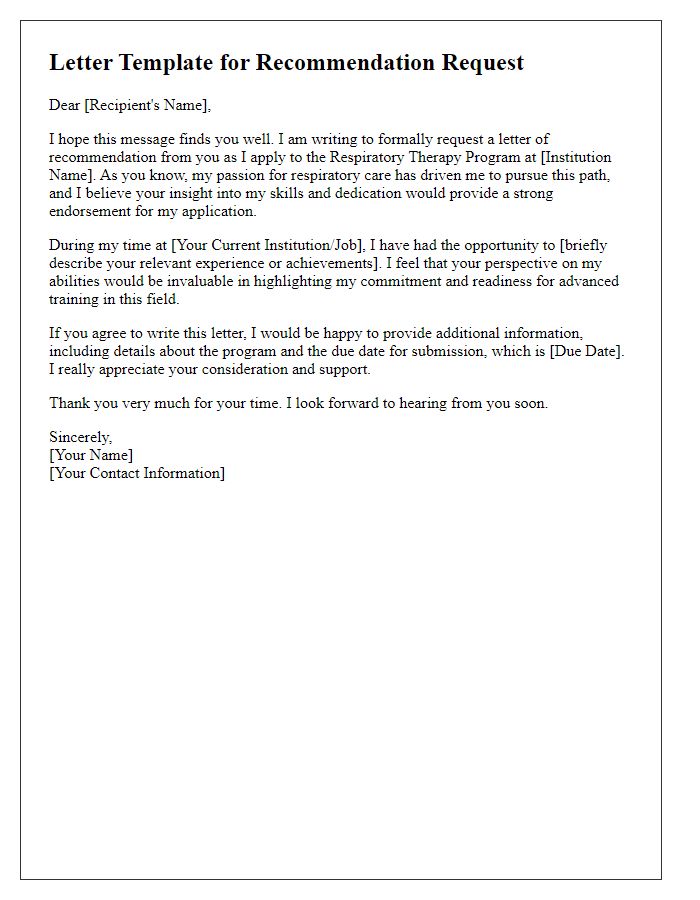
Letter template of financial aid application for respiratory therapy program
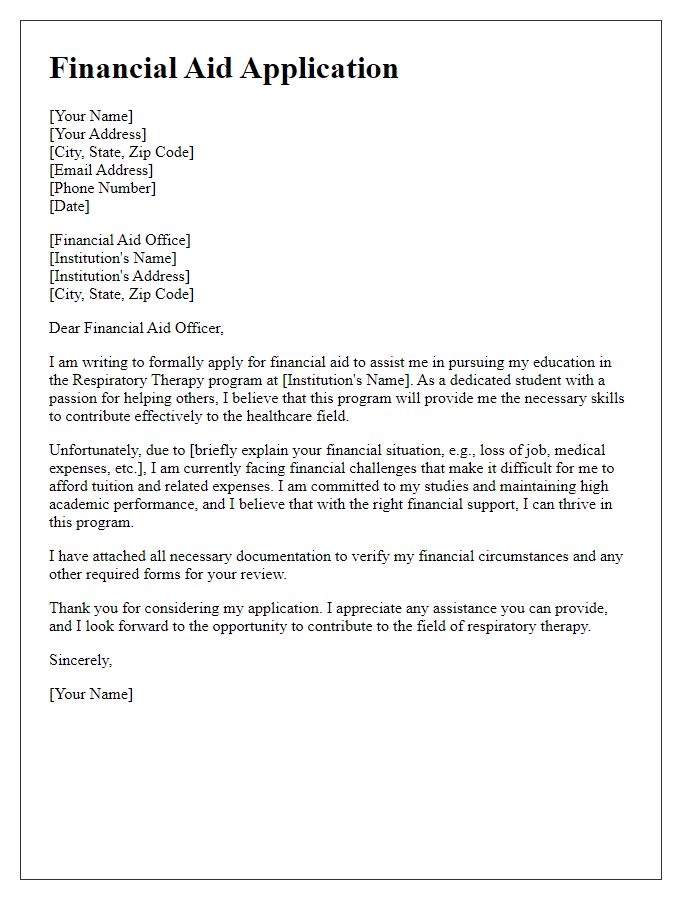
Letter template of internship application related to respiratory therapy
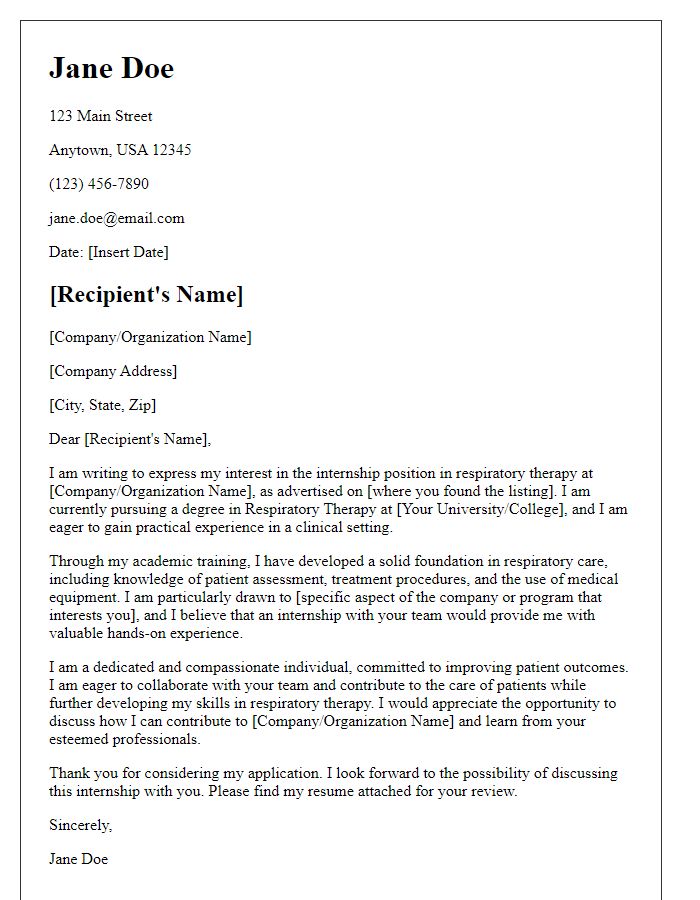

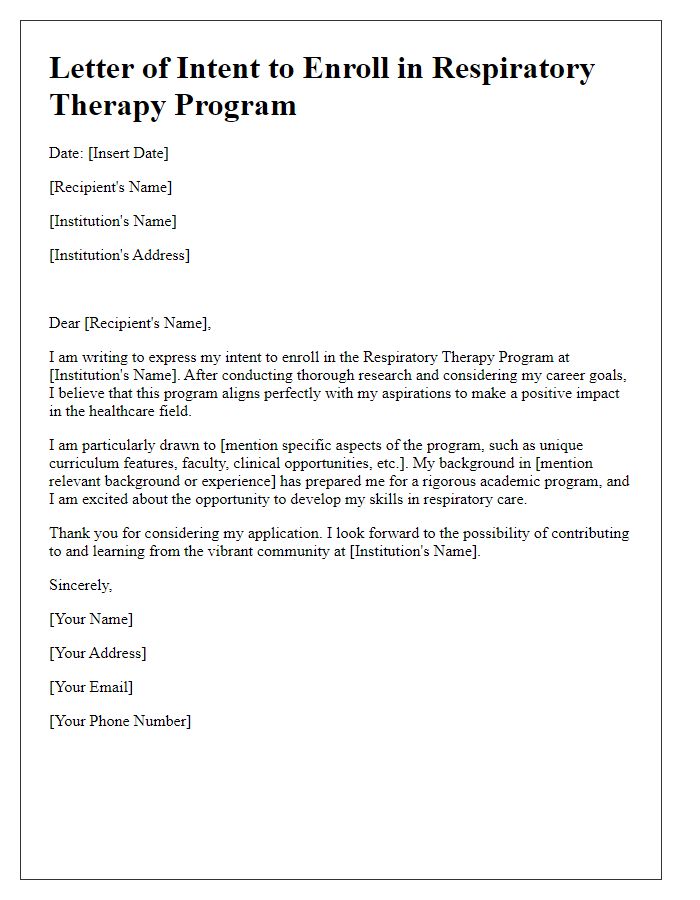
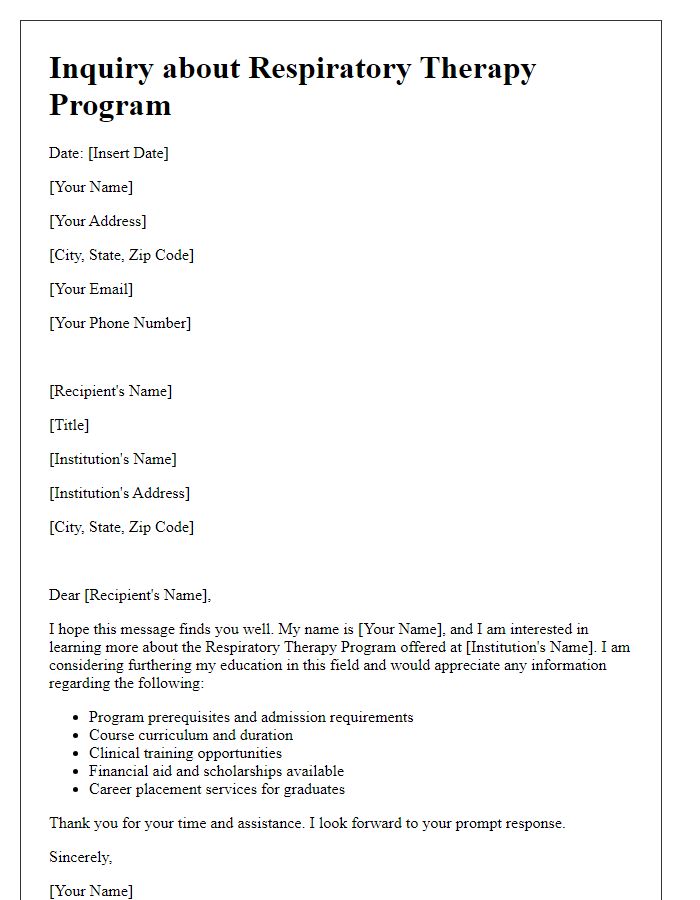
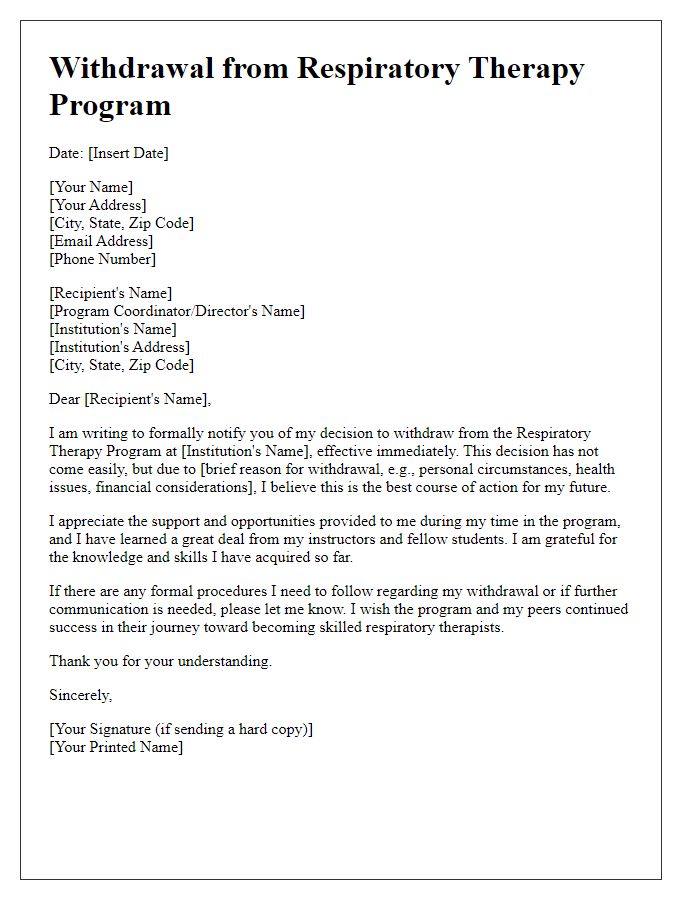
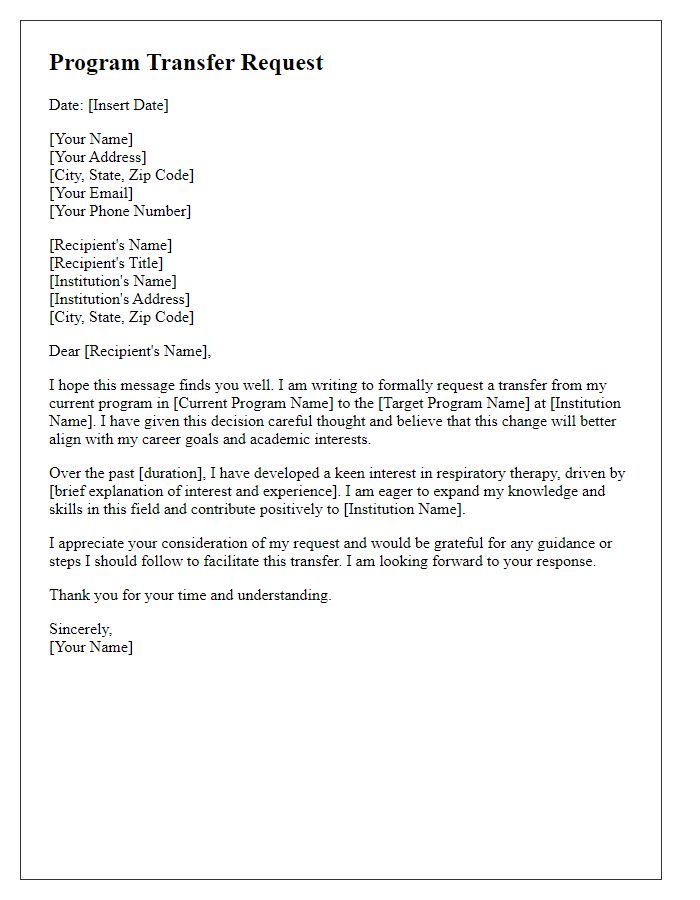
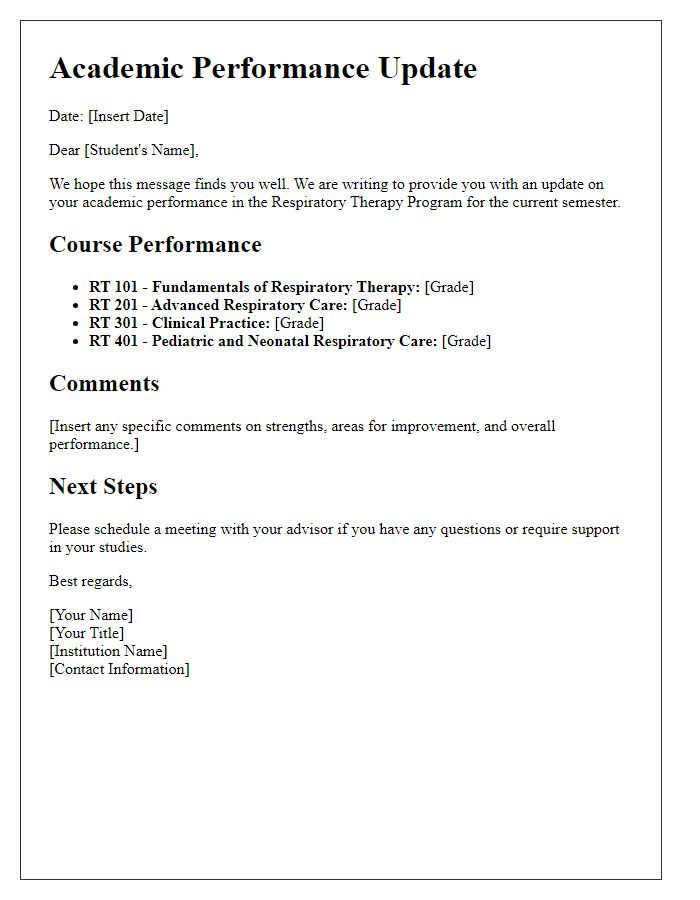


Comments